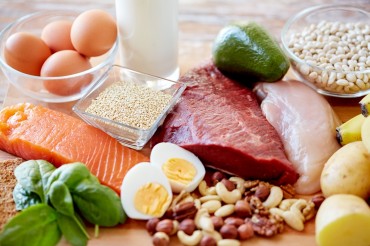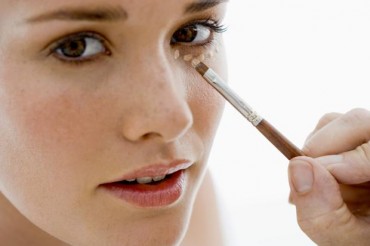For everyone engaging in exercises and muscle-building, protein is an essential nutrient. Despite its importance, there are lots of women that avoid consuming enough proteins.
Many women don’t know the benefits of proteins, while others read too much on the myths about protein. If you fall into any of these categories, this article will inform you of the right things to know.
Once you have a handle on the benefits of protein and overcome the myths, you can start enjoying the benefits of the nutrients it offers.
Benefits of Protein
There are several reasons why you need more protein. Among the nutrients that your body needs, there are several ‘essential’ nutrients. The body cannot manufacture these essential nutrients.
Protein consists of 20 amino acids, nine of which are essential nutrients in the body. To provide these nutrients in the body, it is necessary to consume foods rich in these essential nutrients. Hormones and neurotransmitters are molecules in the body that require a steady supply of protein in the body.
Also, the building blocks of muscle tissues depend on the dietary protein supply in the body. Muscle tissues often break or tear when you perform a workout in the gym or at home. To aid the repairs and replacement of these damaged muscles, you need amino acids from proteins.
These repairs and rebuilding usually occur outside the gym, post-workout. The muscles that grow during replacement are generally more durable. There are lots of other benefits that proteins offer, such as:
Provides an Immune System Boost
There are different types of proteins. One of these is the whey protein that you can get from whey protein powder. Adding this protein to your diet is an excellent way to improve your immune system.
The strengthening of the immune function is possible through the presence of glutathione in whey protein. This tripeptide offers this benefit in addition to the regular muscle-building role of protein.
Controlling Appetite and Stabilizing Energy Levels
Although eating the right amount of protein is essential, many people don’t do so. For anyone that is always looking for something to eat during the day, then this might indicate a lack of sufficient proteins. This is because the body requires more time to digest protein.
The time necessary for digestion reduces your need to consume more food. By minimizing hunger, proteins help you maintain your bodyweight and meet your calorie intake target.
Protection Against Muscle Loss
When following a strict diet or high-protein diet, there is usually a drop in the amount of fat and carbohydrates present in the body. As a result, your body will convert most of your protein into energy. This will reduce the quantity of protein available for other functions in the body.
The body will go as far as breaking down the muscle tissues to produce certain amino acids if the protein is insufficient. The effect of this action is reduced resting metabolism and muscle loss. Consuming more protein and ensuring its availability can help prevent this.
Effective Use of Calories
The thermic effect of food (TEF) is vital to note in discussions about the benefit of protein. The TEF refers to the number of calories necessary for the processing and utilization of a nutrient in the body. The TEF of protein is between 20-35 percent, which implies that the body uses this amount in digesting and absorbing the protein you consume.
With the body burning up to 35 out of every 100 calories you get from protein consumption, it has the highest TEF.
For anyone looking to lose fat, proteins can offer better results than foods with fats or carbohydrates. This is because the body uses up more energy to process it.
Myths About Protein
There are several myths about protein that make it less attractive to most women. Clearing up any form of confusion can help you avoid losing out on the benefits you can get from protein consumption.
It Negatively Affects the Kidneys
Depending on your protein consumption, a higher protein diet can harm those with kidney problems. This is only if you increase your protein intake without increasing your water intake simultaneously.
For active women, increasing protein intake can be done safely.
Bone Health Suffers Due to High Protein Intake
Many people believe that increase in proteins can cause poor health and bone loss. Contrary to these beliefs, the lumbar spine does enjoy a few benefits of protein intake. Besides, there is no evidence to show the adverse effects of protein on bone health.
It Gives a Masculine Physique
Many individuals associate protein with gaining a masculine physique. In truth, shakes for women offer you lean, powerful muscle gains. Avoid imagining yourself becoming manly and bulky when you hit the gym and work out the right way.
The protein you consume and the level of testosterone you have as a lady isn’t enough to develop muscles in the same manner a male would. If you still worry about the effect of excess protein, then you should know that there is a limit to the amount of lean muscle production in a day.
Once your body reaches this limit, it converts the excess protein into amino acids. These will either serve as fuel or will be excreted. The presence of excess protein doesn’t increase the muscular development limit in the body.
Essential Protein Intake
Knowing your essential protein intake is essential when planning your diet. For women, this is 46 grams per day according to the standard food guide recommendation from the Centers for Disease Control and Prevention.
This value will differ since it is for an average individual with a semi-sedentary lifestyle. For any active woman performing regular exercise, the value must increase. This is to give room for the breakdown of lean muscle tissue or to provide enough macros from protein when cutting down on calories from fats and carbs.
You must consume protein from sources like lean red meat, whey protein powder, chicken, eggs, and fish. These are high-quality sources. You should consume between 1-1.5 grams of protein if you’re exercising and dieting at the same time.
You can drop this down to 0.8-1 grams if you’re only exercising.
























































Comments